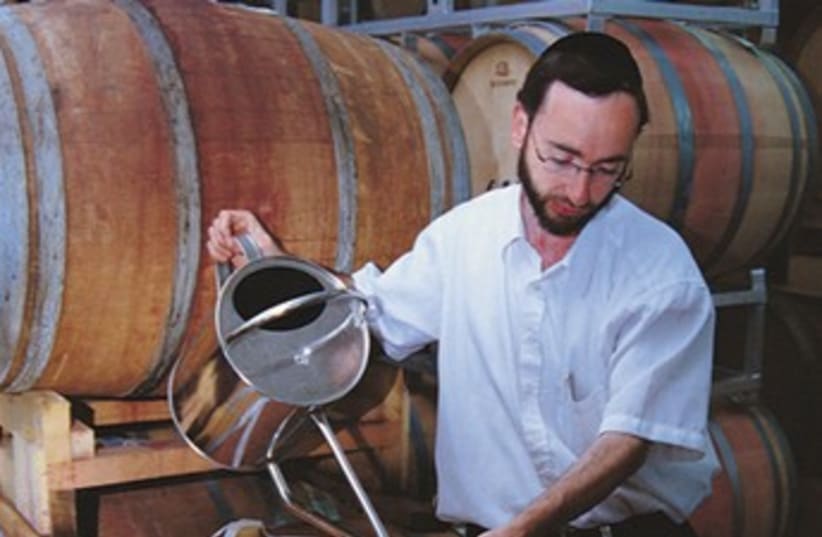c) Kilai hakerem: Cross breeding. Growing vegetables and cereals between the vines is prohibited.d) Trumot and ma’aserot: This is a symbolic ceremony in which more than 1 percent of the production is poured away in remembrance of the 10% tithe once paid to the Temple in Jerusalem.The rabbinical rules were added so that a Jew should avoid drinking yayin nesech, literally, a wine used by non-Jews to make libations for idol worship; or stam yeinam, an ordinary wine made by and for non-Jews.Yayin mevushal Mevushal wines must be pasteurized, and they remain kosher even when served by someone non-observant. This is sometimes a requirement by kosher caterers for functions or banquets.My objective is to make the best wine possible that is kosher as well. Though it sounds very complicated, it is easier than you think. The laws of orla and kilai hakerem are usually observed in the general wine world because they make sound agricultural sense. The restrictions on the winemaker may be frustrating to a hands-on winemaker, but those producing kosher wines are used to it. If something is prohibited because it is not kosher, there are always acceptable alternatives.Basically, kosher wine is made in the same way as non-kosher wine. The harvesting, fermentation, aging and bottling are the same for a kosher wine as a non-kosher wine. So it is possible to make good or bad kosher wines, but whether they are kosher or not doesn’t affect the quality.If you observe the Jewish dietary laws, you have the opportunity to drink very good kosher wines today. Furthermore, the non-Jew can be drinking gold-medal wines that have received high scores from international critics, without realizing they are kosher.Now, this is not to say that sweet kiddush or sacramental wines are quality wines, but they should not be confused with kosher table wines. The concept of mevushal wines is more controversial, and it may be said to create an image problem. Some wineries specialize in flash pasteurizing wines to reduce the bad effect on quality. However, it is fair to say that nearly all the finest kosher wines made in Israel and abroad are not yayin mevushal.I write as a wine professional, not as a rabbi. For those who have questions or want better explanations, there is a new solution at hand. I have seen the preview of a comprehensive exhibition called “What Is Kosher Wine?” It is a brilliantly conceived, mobile exhibition designed to make it accessible and easily transportable. It is in Hebrew and English, with wonderful photography and concise explanations, going back to the sources. It can be easily displayed for audiences anywhere and would be appropriate for religious or secular Jews, curious Christians or wine professionals.
For more information about the exhibition, see www.probooks.co.ilAdam Montefiore works for Carmel Winery and regularly writes about wine for Israeli and international publications.adam@carmelwines.co.il
